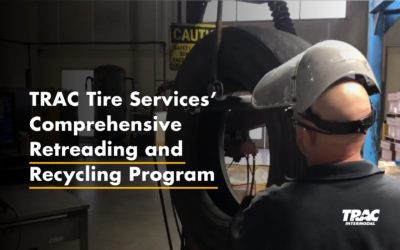Tips for Motor Carriers: Keeping Your Engine From Overheating in Summer Temperatures

While winter weather can make for tricky and even treacherous driving, summer can be just as dangerous. It’s relatively easy for an engine to overheat, especially when sitting in bumper to bumper traffic on sweltering days. Regular, ongoing maintenance will go a long way to preventing a breakdown, but there are a few things you can do before you hit the road and while you’re driving to keep your engine functioning properly.
Pre-Trip Inspection
- Radiator System: Make sure your radiator cap isn’t cracked and that the seal is in good condition. Check that hoses and lines are free from corrosion. Hoses in particular are often overlooked, but because they are rubber, they can crack, leak and rot over time. A broken hose, for instance, will prevent fluid from getting to and from the engine correctly.Note: Remember never to touch or try to remove the radiator cap before the engine has fully cooled.
- Coolant: Not only do your coolant levels need to be sufficient, but the coolant to water ratio also needs to be correct. Truck manufacturers provide guidelines for the appropriate coolant-to-water mixture. Coolant should also be free from debris or dirt, so inspect it visually as well. Not all coolants are the same, so when topping off be sure you are not mixing two different kinds or old with new. Coolants come in a range of colors now, typically signifying different boiling points. Mixing them could impact the performance of your engine.
- Engine Oil: Engine oil is just as important for keeping your engine cool and working properly as coolant and water. Always make sure engine oil is at the proper level.
- Leaks: Some leaks are obvious, and you can tell by the location of the puddle under your truck as well as the color or smell of the liquid what it might be. Other leaks might not make themselves known with a puddle – so check hoses and lines for cracks, breaks or leaks.
- Belts: Like hoses, belts are rubber and can wear out over time – but summer temperatures can put even more strain on them. They are a critical component for running many systems in an engine, including the fan and water pump.
On-the-Road
- Keep Speed Down: Driving too fast can make a truck overheat, especially when hauling heavy loads. Drive slowly and take breaks often to let the system cool off.
- Periodic Checks: Check water and coolant temperatures as you go as well as engine oil and coolant levels. If you have an oil temperature gauge, make sure the oil temperature stays within the range it needs to as you’re driving.
If you do run into problems on the road – whether an overheated engine or any other issue – or need preventative maintenance for your truck or fleet, please contact FYX at 800-888-1001 or
you can choose to download the FYX App. The FYX innovative platform streamlines communications and monitors service in real time for faster repairs and minimized downtime.
RECENT POSTS
TRAC Tire Services’ Retreading Process
TRAC Tire Services’ Comprehensive Retreading and Recycling ProgramAugust 5, 2022Last month, TRAC began rolling out a series of blog posts focused on TRAC Tire Services’ comprehensive retreading and recycling program at its Florence, KY facility. TRAC Tire’s programs...
Laura Reeder as Executive Vice President and Chief Human Resources Officer
Press ReleaseLaura Reeder as Executive Vice President & Chief Human Resources OfficerJuly 6, 2022Princeton, N.J, July 5, 2022 – TRAC Intermodal, the largest marine chassis provider and pool manager in North America has announced that Laura Reeder has joined TRAC‘s...
TRAC Intermodal Again Named Intermodal Equipment Provider of the Year by BNSF Logistics
TRAC Intermodal Again Named Intermodal Equipment Provider of the Year by BNSF LogisticsApril 11, 2022For the second year in a row, TRAC Intermodal was recognized by BNSF Logistics as its 2021 Intermodal Equipment Provider of the Year. As an NVOCC and a top logistics...



